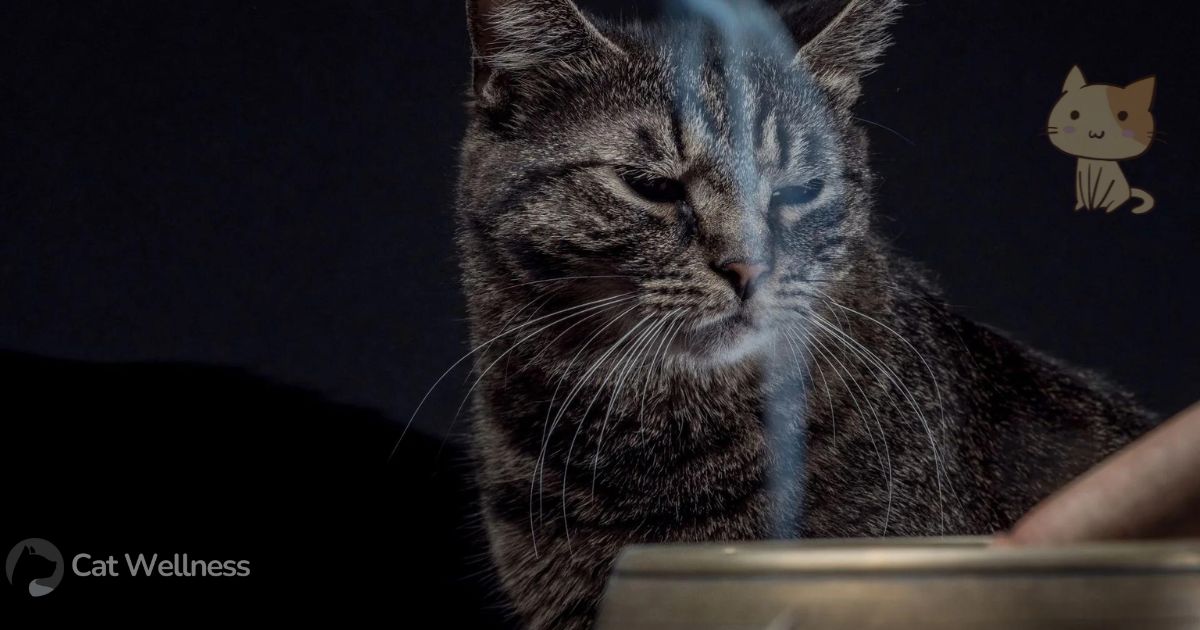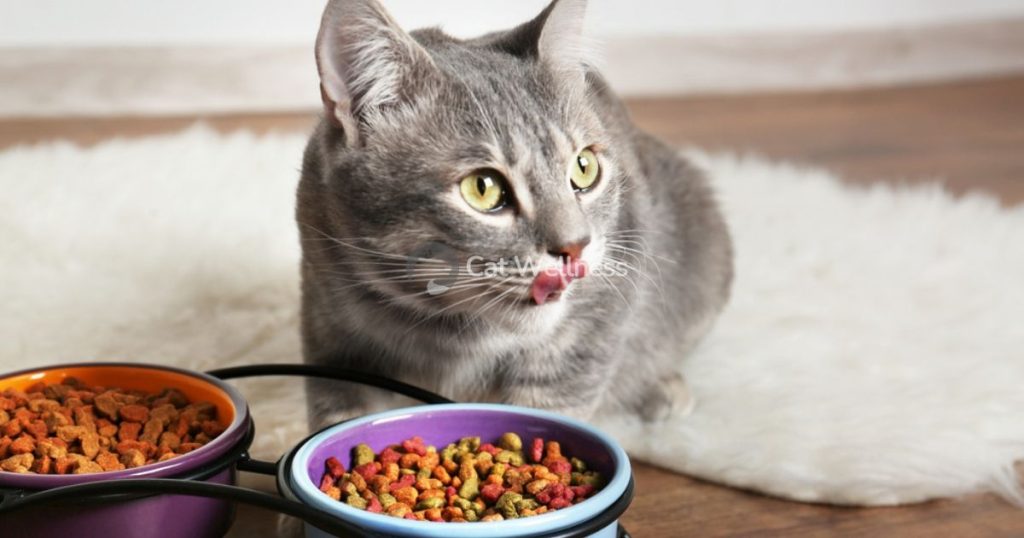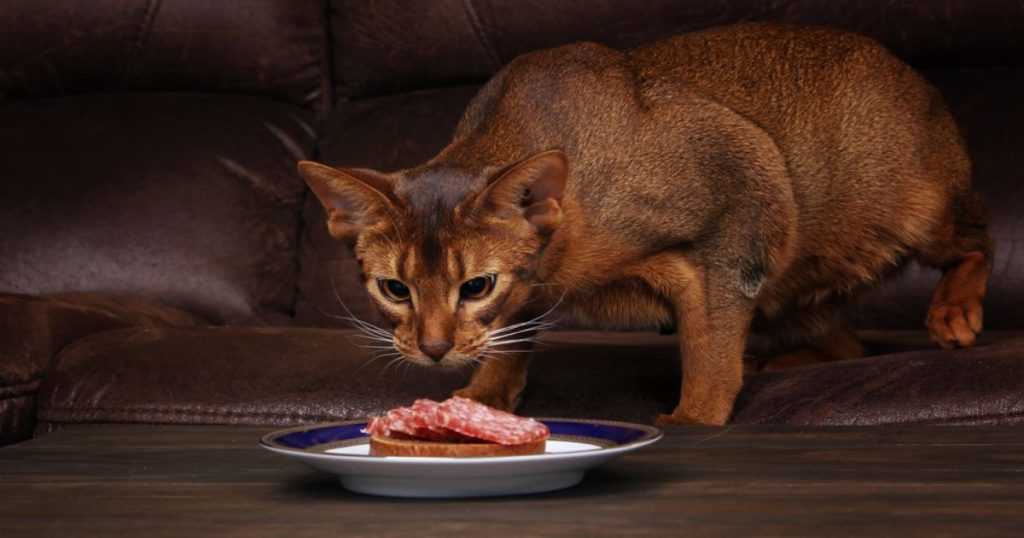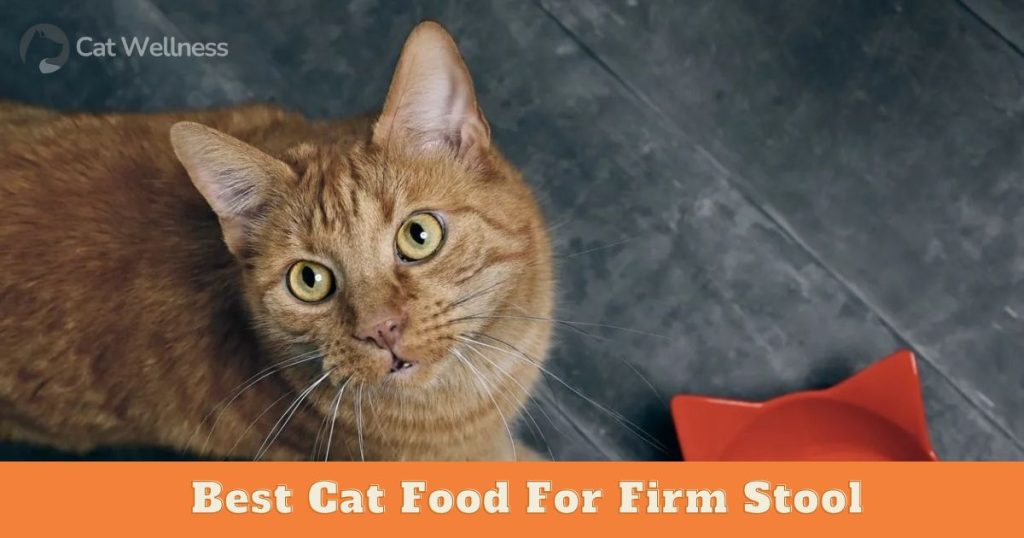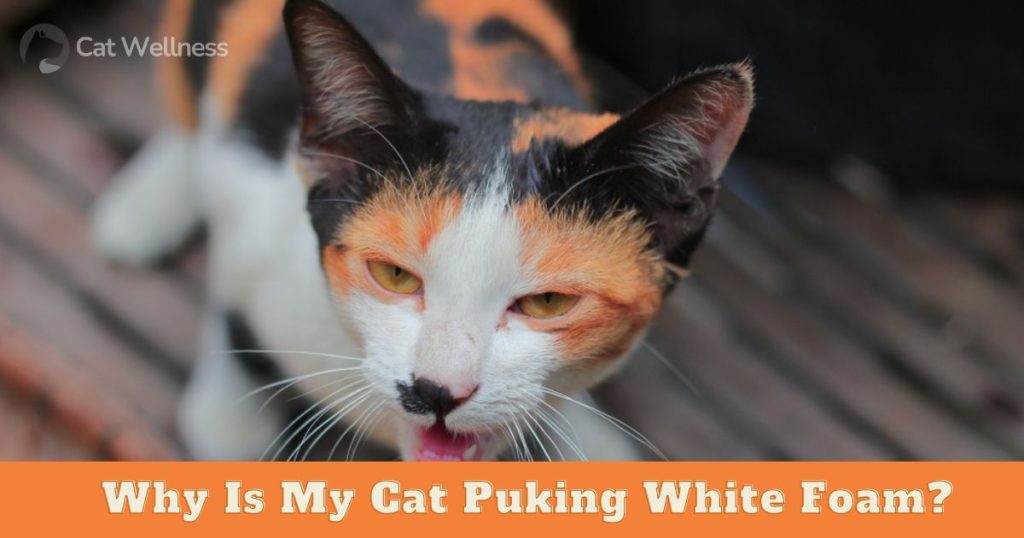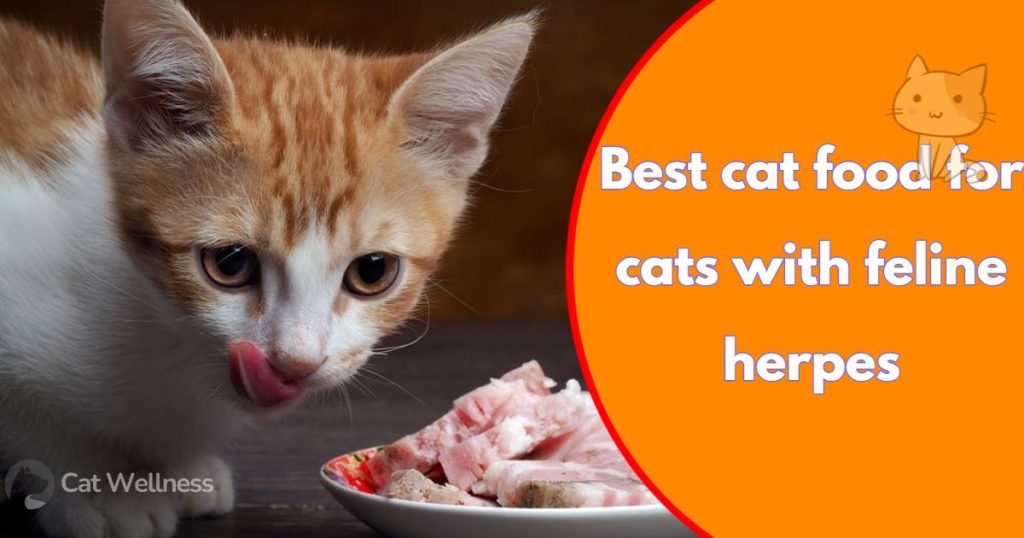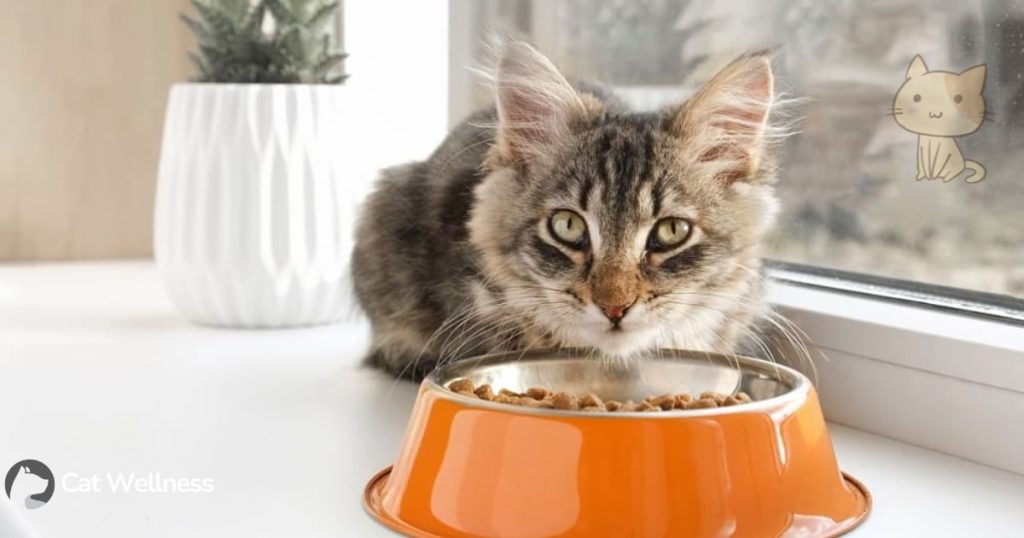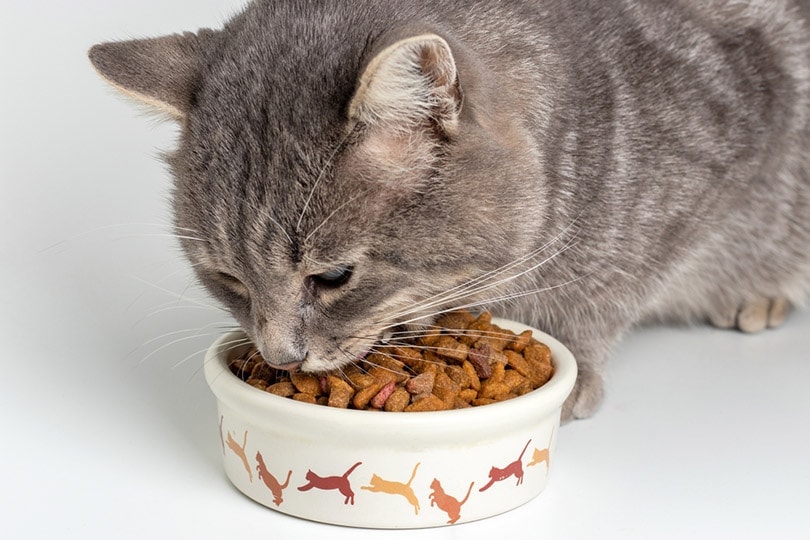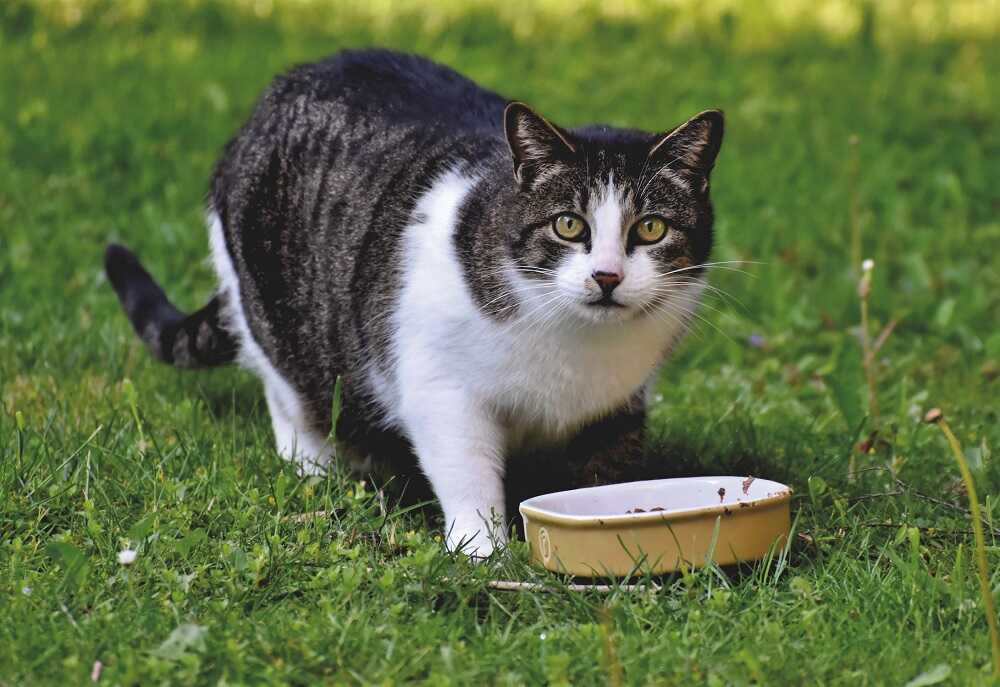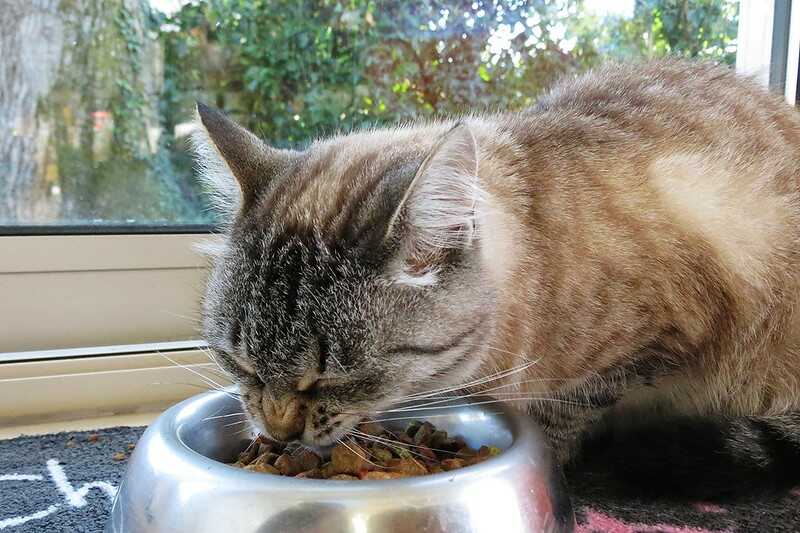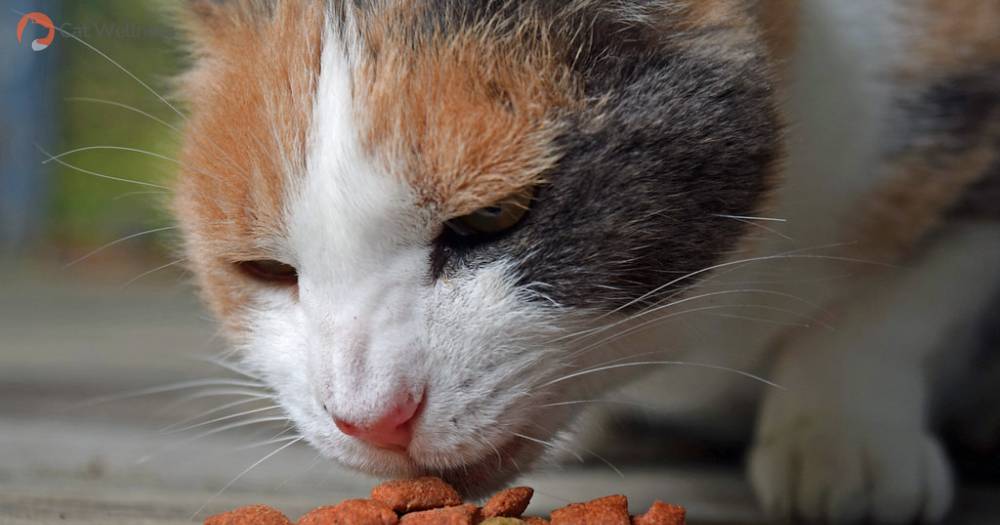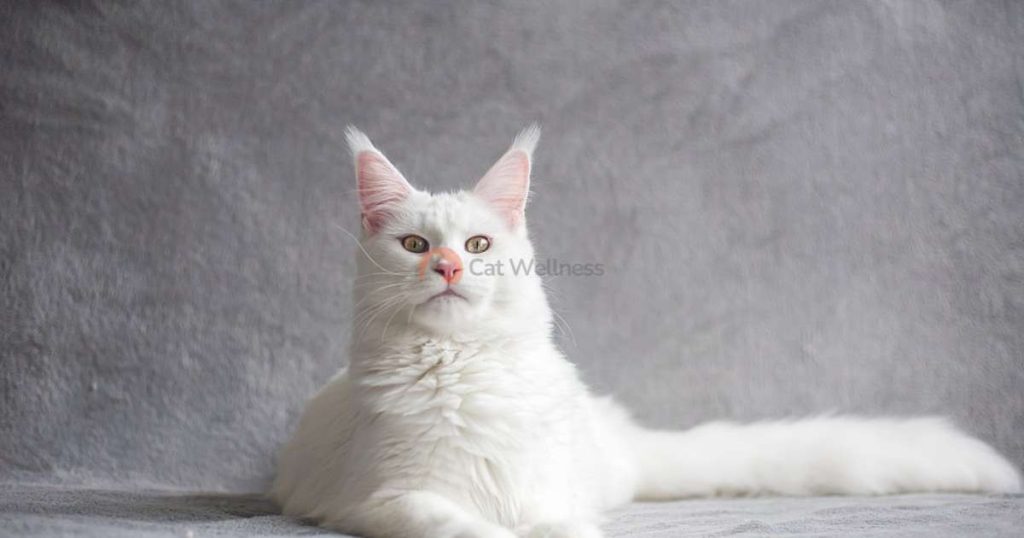Curious cat owners often wonder whether the fragrant allure of incense is safe for their feline companions. In this exploration, we delve into the question: Is incense bad for cats?
Join us as we uncover the potential risks and precautions to ensure your beloved pets remain happy and healthy amidst the soothing aroma of burning incense.
About Incense
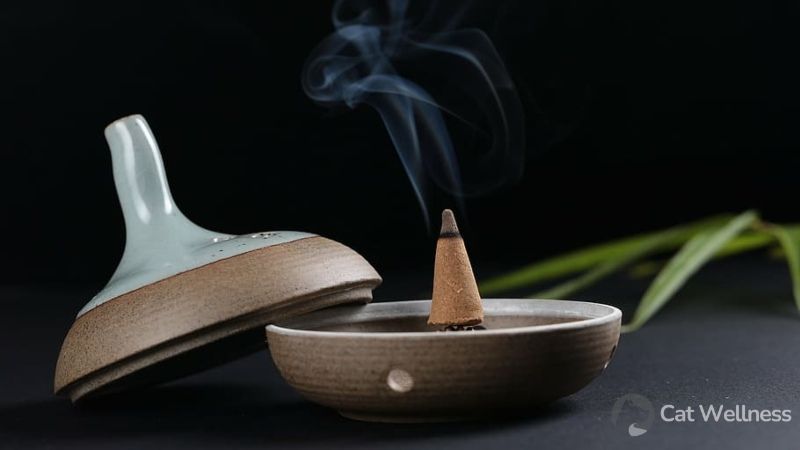
Incense is created from natural plant materials and essential oils that are compressed onto a bamboo stick or molded into various shapes like cones or blocks.
When ignited, it emits a pleasant-smelling smoke that finds applications in religious rituals, meditation practices, and even everyday atmospheres.
The use of incense has a rich history, with its origins tracing back to ancient China, where it played a pivotal role in worship and prayer.
Egyptian priests are also known to have utilized it during ceremonies and for purifying tombs. In contemporary times, India holds the distinction of being the world’s primary producer of incense, where it remains an integral aspect of the Hindu faith.
Is Incense Bad For Cats? 6 Ways It Harms Your Pets
There are several reasons why it’s not advisable to use incense around cats. First, the smoke it produces can be irritating to their airways.
Second, due to their highly sensitive sense of smell, the scent of incense can be overwhelming for cats. Additionally, the burning process can release potentially harmful chemicals.
In fact, the Environmental Protection Agency (EPA) has identified incense burning as a source of indoor air pollution.
Heightened Sense of Smell
Cats possess an exceptional sense of smell, far superior to ours. To put it in perspective, cats have approximately 200 million odor receptors, compared to humans who have only 5 million.
This heightened sensitivity means that cats can perceive scents much more intensely than we can. Imagine the impact of strong odors like eucalyptus or citrus magnified by forty times!
Cats heavily rely on their sense of smell for various aspects of their daily life, including scent marking and pheromone communication with themselves and other cats.
Overpowering odors in their environment can disrupt these crucial scent signals, causing stress and anxiety for your cat.
Risk of Burns

Cats can sustain burns if they become curious and investigate burning incense sticks. It’s crucial to never leave cats unsupervised around anything that burns, including candles, fires, or incense sticks.
While these items may appear safe and not particularly hot, a curious cat could easily get burned if it pokes its nose into the hot ash at the end of a burning incense stick.
Cats are known for their curiosity, and an accident like knocking over a burning incense stick could lead to disaster.
Irritating Smoke
When incense burns, it releases smoke that can quickly permeate the room and the entire house, making it hard to escape from.
Cats are highly sensitive to inhaled chemicals, and smoke is a known irritant to their respiratory tracts.
Exposure to smoke can lead to symptoms such as sneezing, coughing, congestion, watery eyes, and a general feeling of lethargy in cats. In rare cases, cats can develop allergies to incense and its smoke, which may result in breathing difficulties. These symptoms can worsen with repeated or prolonged exposure.
Risk of Asthma
Regularly burning incense in your home exposes your cat to long-term smoke, which can cause lasting damage to their lungs and increase the risk of chronic respiratory issues like asthma.
The EPA has identified incense as a contributor to indoor air pollution, significantly affecting the air quality in our homes.
Volatile Organic Compounds
The burning of incense produces chemicals in the form of smoke. The quality of incense can vary, and some types may contain added ingredients.
Burning low-quality incense can release certain compounds, some of which may be carcinogenic, posing a risk to both pets and humans.
Essential Oils
Incense is crafted from various plant materials infused with essential oils. It’s worth noting that some essential oils can be harmful to cats, irritating their airways when inhaled and being toxic if ingested.
While cats are unlikely to consume incense, their natural curiosity makes it safer to keep potentially harmful substances out of reach, especially when mischievous kittens are around.
How to Savor Incense While Living with a Cat
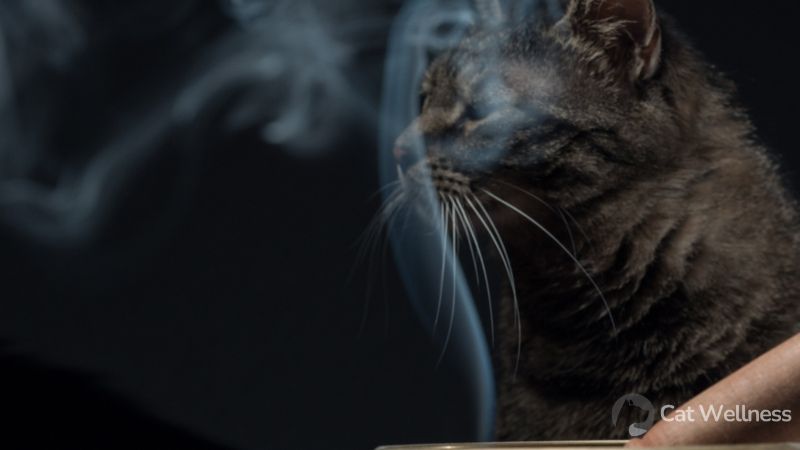
What if refraining from using incense is not a viable choice for you? Whether you have an affinity for its fragrance or it holds significance in your meditation routine, there may be circumstances where you cannot forego using incense.
So, how can you still indulge in the use of incense in your home while ensuring the safety of your cat?
Ensure Inaccessibility for Your Cat
To minimize your cat’s exposure, it is advisable to place the incense well out of your cat’s reach. This could involve positioning it in a location that your cat cannot access or keeping it in a separate room that your cat cannot enter.
However, exercise caution, as some cats can be surprisingly adept at reaching high places!
Prioritize Adequate Ventilation
Keep in mind that one of the primary concerns with incense is the particles generated by the smoke. To reduce the number of particles that might settle into your cat’s lungs, ensure that the area where you burn incense is well-ventilated.
The simplest way to achieve this is by opening a window, but also consider the size of the room for effective ventilation.
Opt for High-Quality Incense
It’s crucial to note that there is a substantial disparity in incense quality, and using a lower-quality product can lead to a greater presence of unhealthy particles in the air. The key distinction to look for is between traditional incense and “dipped” incense.
Traditional incense is crafted through a time-honored process that involves blending raw ingredients into a powder form.
This powder is then combined with honey to create a dough-like substance, which is meticulously rolled onto a plain bamboo stick. This delicate and time-intensive process makes traditional incense more expensive.
On the other hand, dipped incense is a cost-effective and mass-produced alternative. In this method, sawdust or charcoal powder is added to the stick instead of using a plain bamboo stick (which burns cleanly).
Additionally, these sticks may undergo chemical treatment before being dipped into a scented mixture. Consequently, instead of the clean and natural burn of traditional incense, you end up with a combination of chemicals burning alongside your desired scent.
What Are The Pet-Friendly Ways to Get a Nice Home Smell?
Instead of immediately reaching for the nearest air freshener or lighting up a candle, it’s important to be aware that these methods can be just as harmful to your cat as burning incense.
Even natural ingredients can pose a threat to your feline friend. Here are some alternative tips for naturally eliminating unwanted odors:
- Regularly dust your home to remove dead skin, pet dander, pollen, dirt, and insect droppings, which can cause a musty odor and impact indoor air quality.
- Use baking soda to absorb odors on furniture and carpeting. Sprinkle it on problem areas, let it sit for 24 to 48 hours, and then thoroughly vacuum it up.
- Incorporate fragrant plants like rosemary, sage, or lemon balm to naturally freshen the air. Ensure they are placed out of your cat’s reach and in sturdy containers that can’t be easily tipped over.
- Consider using an indoor air purifier, as these machines effectively capture and eliminate unpleasant odors before they settle into your home’s soft furnishings, such as furniture, drapes, and carpets.
- Create a pleasant aroma by simmering a pot of water with ingredients like cinnamon sticks, apples, or vanilla.
Conclusion
In short, is incense bad for cats? Regrettably, despite its delightful aroma, using incense at home isn’t advisable for pet owners, particularly those with cats.
There are several factors that render incense harmful to feline companions, including its strong fragrance, the potential for respiratory issues and smoke-related irritation, as well as concerns about the chemicals present in the incense itself.
There are alternative, safer methods to scent your living space. However, if you choose to burn high-quality incense in a well-ventilated room that is inaccessible to your cats, you can significantly minimize the risk of causing any harm or discomfort to your feline friends while still enjoying the benefits of incense.
Recommended Reading

